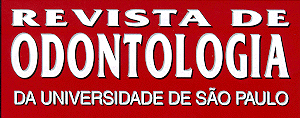The erosive effect of soft drinks on enamel-dentine and the saliva capacity in repairing the alterations was evaluated considering the model adequacy and the absence of research in relation to dentine. Nine volunteers, wearing intra-oral palatal appliances containing 4 enamel and 4 radicular dentine blocks from bovine incisors, participated in this study of 5 phases, in which Coca-Cola (Coke) was consumed from 1 to 8 times/day. Superficial microhardness (SMH) determinations were performed with loads of 50.0 and 15.0 g, respectively for enamel and dentine. The analyses were made: a) 2 h after saliva action; b) after the last intake of coke; c) 24 h after saliva action. The results showed that in function of frequency of coke ingestion, the percentage of microhardness change (% SMHC) ranged from 18.7 to 27.9 for enamel and from 24.6 to 32.6 for dentine. These reduction were statistically significant at 5% (paired "t" test). The percentage of microhardness recovery (% SMHR) by saliva action was significant (p < 0.05) and ranged from 43.6 to 35.6 for enamel and from 40.5 to 34.6 for dentine. However, statistical analysis showed that total recovery was not significant (p > 0.05). There was also a significant correlation between frequency of Coca-Cola ingestion and % SMHC, being 0.97 for enamel and 0.72 for dentine. On the other side, in relation to % SMHR the correlation was negative, -0.70 for enamel and -0.74 for dentine. It was concluded that in function of frequency of Coca-Cola ingestion there are proportional and irreversible losses of superficial structure either in the enamel or in the dentine
Dental Erosion; Beverage; Enamel; Dentine; Saliva




